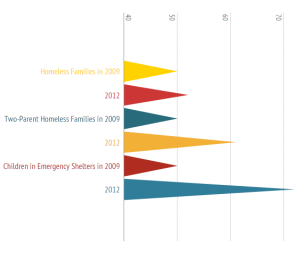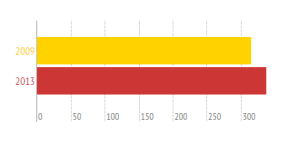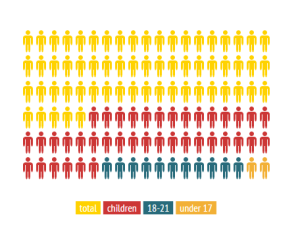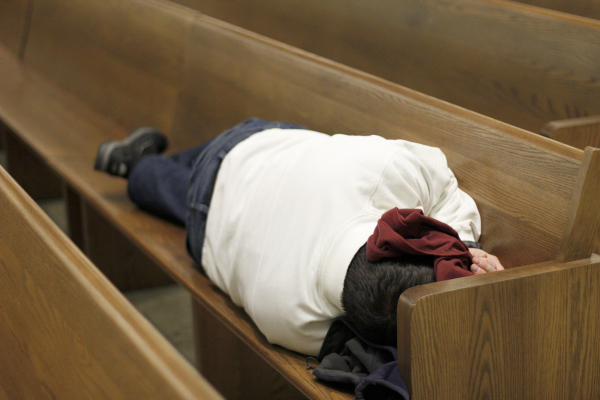You may have seen dozens of students on campus carrying around sleeping bags and cardboard boxes, and sleeping in hallways this past week. These students, combined with the cardboard signs hanging around campus with homelessness and hunger facts, are raising awareness about the current realities of homelessness and hunger in our country.
These students are a part of Associate Professor in Political Science, Environmental Studies, Japanese Studies, and Peace Studies Richard Leitch’s First-Term Seminar, “The Politics of Homelessness.” As part of the course, the students become homeless from Sunday to Wednesday every fall before Thanksgiving.
Their sleep-out falls during National Hunger and Homelessness Awareness Week, which involves a variety of events hosted across the country from Nov. 15-23. The signature event was a viewing of Storied Streets, a documentary about the perception and stereotypes of homelessness in American culture. Two Minnesota showings were held in Brainerd and Mankato on Nov. 16 and can now be bought or rented at their website www.storiedstreets.com.
Over 750 high schools, colleges, community groups, and church groups have come together to put on events such as sleep outs, fundraisers, benefits, galas, and training sessions. Along with the documentary showings, Minnesota hosted its own variety of awareness events. Fundraisers were held at Buffalo Wild Wings in St. Paul and Minneapolis, an Eliminate Homelessness Breakfast was hosted in Owatonna, Gala 4 HOPE was held in Andover, and a Camp Out was held in Belle Plaine.
Homelessness and Hunger can be found in all parts of the country, including the Twin Cities. Despite increased awareness of homelessness and an increase in the number of shelters, homelessness is on the rise in Minnesota.
According to the National Homeless website, Hunger and Homelessness Week is always held the week before Thanksgiving to remind people about giving thanks for what they have and sharing compassion with neighbors who are experiencing homelessness.
-Erika Clifton



